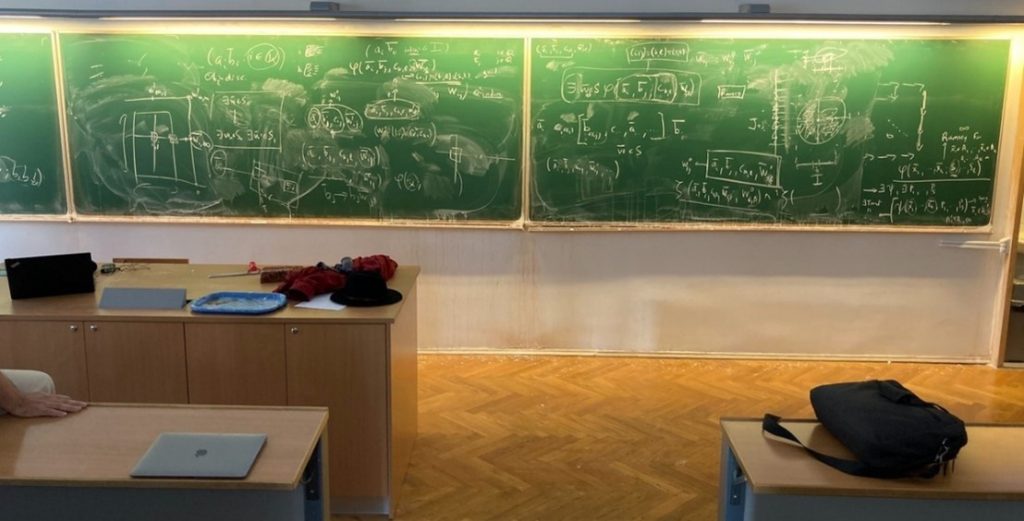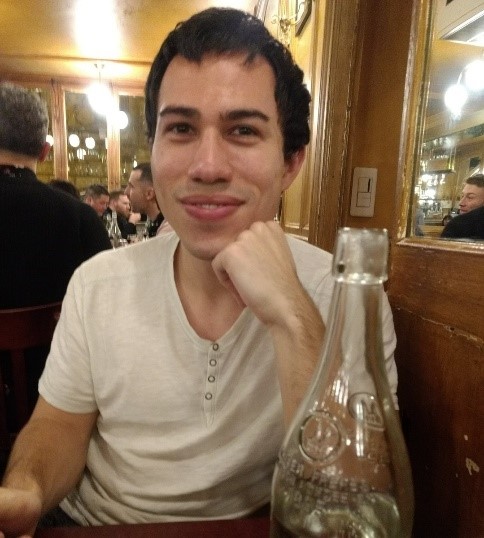
Mathematics is often perceived as an impersonal and detached science full of formulas and numbers. Samuel Braunfeld from the Faculty of Mathematics and Physics at Charles University, a JUNIOR STAR project investigator, sees mathematics differently. He sees it as a fascinating world where language and logic intersect to reveal complex structures that affect our everyday lives. His research combines abstract model theory with the practical study of complex networks such as computer systems, social networks or biological structures. The results of his work can provide not only new theoretical insights but also practical solutions for data management and information processing.
Samuel Braunfeld’s path to the study of mathematics was complicated. At one time, he even considered studying literature. Eventually, however, he became fascinated by mathematics, which he saw as a never-ending intellectual challenge. In particular, his curiosity was aroused by model theory. “Model theory is captivating because it focuses on language and interpretation,” says the researcher. “It’s like being part of a joke where you keep interpreting the language differently than you intended, and at the end you get to a proof that surprises you.” It is this combination of clear logical structure and creative thinking that forms the backbone of his current research.
Model theory as a key to decoding networks
In his JUNIOR STAR project, he explores how model theory could be applied to different types of networks. These are found all around us – from the web of interpersonal relationships, to complex computer systems, to biological processes in our bodies.
Although at first glance these networks may seem very different, his hypothesis is simple: each network can be classified into one of two categories. Either it is so structured that it can be divided into simpler parts that communicate easily, or it is so complex that no simplistic analysis is appropriate. “There is no middle ground – either the network breaks down into clear components or it is so complex that we have to treat it as a whole,” says Braunfeld.

Efficient representation of networks
If the hypothesis is confirmed, the research could make a significant contribution to understanding how and when networks can be efficiently operated and stored with minimal demands on capacity and time. The results of the project will not only deepen understanding of the relationship between seemingly distant disciplines – model theory and combinatorics – but may also influence other fields.
A key goal of the project is to determine when networks are simple enough for further processing. “The research will provide crucial insights into the environments in which specific programming techniques can work effectively,” explains Dr. Braunfeld. These insights are important for the development of computer science and the management of big data systems.
New team works with experts from Europe and the USA
His research also has an international overlap. Dr. Braunfeld works with experts from Europe and the USA. His experience from different research environments helps him not only in his scientific work on the project, but also in leading his own team, which he has assembled thanks to the support of GACR. “Leading a team is a new challenge for me, but also an opportunity to support young researchers and help them develop their own ideas,” he adds with enthusiasm.

Samuel Walker Braunfeld, Ph.D.
JUNIOR STAR
JUNIOR STAR grants are intended for excellent early career scientists who have received their Ph.D. less than 8 years ago and who have already published in prestigious international journals and have significant international experience. With five-year funding of up to 25 million CZK, JUNIOR STAR grants allow for scientific independence and the eventual establishment of their own research group. Only a fraction of submitted projects will be supported. For 2024, only 17 out of 175 project proposals were supported.